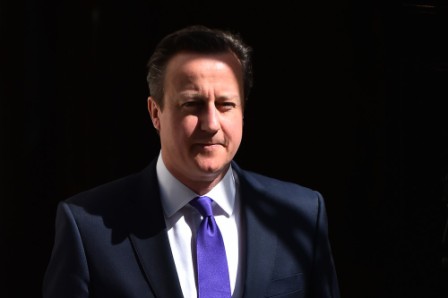UK to end jihadi menace
London
Stoking the debate over the balance between security and civil liberties, Prime Minister David Cameron pledged yesterday to seek broad new police powers to combat the radicalisation of Muslims in Britain and to end to what he termed “passive” tolerance of extremism.
Cameron’s office said the proposals included a new system under which the police would be able to apply for “disruption orders” allowing them to restrict the activities of those thought to be radicalising people. The orders would be overseen by the courts.
Details have yet to be made public, but according to British news reports, the orders could include a requirement that anyone subject to the restrictions submit in advance any material to be published in print, digitally, or on social media. The proposed legislation, which will be included in the new government’s legislative program to be announced this month, might also include new powers to close buildings being used to promote violence or jihad, including mosques with radical preachers.
Cameron’s decision to press ahead with the proposals reflects the new freedom he has to pursue his Conservative Party’s agenda after his election to a second term last week and with an absolute majority behind him in Parliament — a shift from his first term, when he had to govern in a coalition with the centrist Liberal Democrats.
The new approach in Britain comes at a time when the United States and Europe are grappling with what weight to give to privacy, freedom of speech and assembly, and other basic democratic rights as they develop more aggressive surveillance and law enforcement responses to evolving threats from organized terrorist groups and individuals inspired by them.
The British proposals were drawn up after the murder in May 2013 of a British soldier, Lee Rigby, in a vicious daylight attack on a street in southeast London. Since then, a significant number of Britons are thought to have left the country to fight with jihadist groups in Syria or Iraq. Cameron’s office rejected claims that the powers could be used to erode free speech, arguing that they were intended to combat forces such as Islamic extremism and neo-Nazism. (The New York Times)
Related Posts

